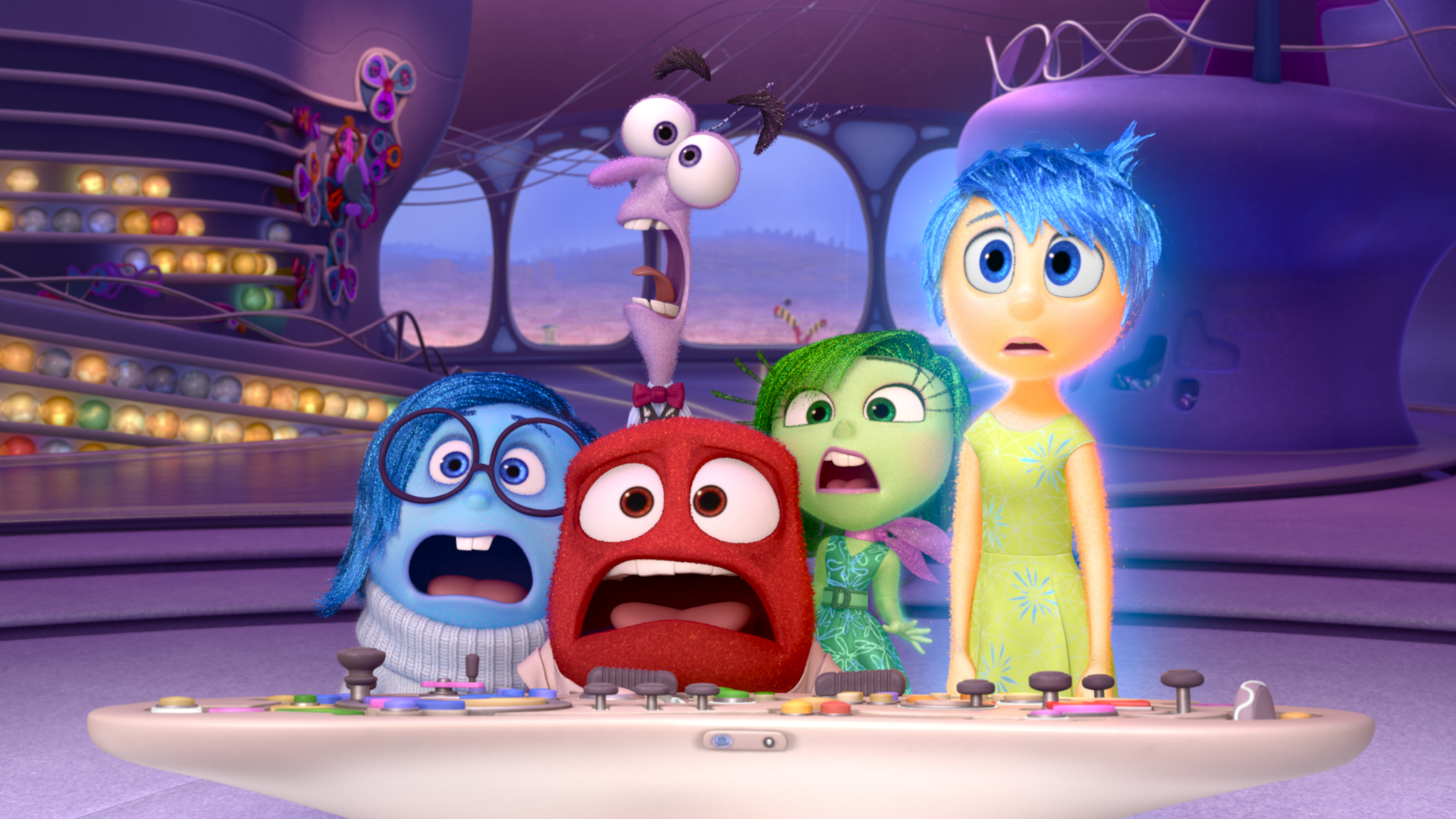Inside Out - Movie Review
There’s a sort of poetic appropriateness to having sat down to watch Inside Out only hours after suffering a rather severe emotional breakdown. For reasons I don’t feel ready to delve into I was feeling down - REALLY down - and it was with a still cluttered mind that I came into Pixar’s newest creation, still slightly out of it and just hoping to distract myself from my overzealous emotions. Inside Out takes us inside the mind of a young teenage girl, Riley, where we meet the manifestations of her various emotions: Joy, Sadness, Fear, Disgust, and Anger. Together they attempt to guide Riley through life, safe, enthusiastic, and most of all happy, an ideal which begins to quite literally crumble around them when Riley’s family moves and all the pain and uncertainty that comes along with such a radical change weighs down on her.
As a basic concept, there’s something incredibly familiar about Inside Out’s very technological approach to emotions and the human mind (particularly memory). We’re walked through the elaborate mechanisms governing Riley’s mental state and keeping things running smoothly. Pristine, space age tech provides window dressing for most of the film, and for a while Inside Out has trouble finding the humanity in its sterile setting and the robotic routines being enacted within it.

There seems to be this odd trend in which the concept of an internal guiding force is manifested as the real person within some sort of giant human suit. It’s an interesting concept if we were to discuss autonomy and the societal pressure to conform, but as an idea on its own it’s always felt extremely off-putting and reductive to me. Perhaps I’m reading too much into it, but the idea that someone can be summed up as simply a handful of emotions and a bunch of tubes and gears is startlingly uncomfortable.
And that’s why Inside Out is so surprising. Once it leaves the pristine control room from which it so dreadfully introduced us to the various contraptions and mechanics for running a human mind, the humanity that is always at the heart of Pixar’s films comes out. My biggest concern going into Inside Out was in how it would handle its five characters-as-emotions. It would have been far too easy to distil them to their most rudimentary and recognizable expressions, but Inside Out not only recognizes this but spends almost its entire running time subtly and ingeniously breaking down the simplicity with which we often think of joy, sadness, fear, and the rest of our emotive cast.
Emotions are multifaceted and complicated, and Inside Out brilliantly explores this primarily through the intensely touching friendship between Joy and Sadness, both the characters and the literal emotions (by which I mean everything I was feeling by the end). The concept of sadness as cathartic and therapeutic is something that’s rarely discussed, either because of the idea that showing sadness is weak or embarrassing. Inside Out understands this so well, and then uses it to utterly destroy the audience by the end. I haven’t felt so emotionally wrecked by a film in years, and judging from the tears in the eyes of the friends I saw it with, it works on a lot of levels.
Final Word
I still have trouble getting past the necessary distillation of humanity that always happens with films like this, but it’s countered with the overwhelming authenticity found in its dialogue and the vulnerability of its characters. Movies about the emotions of teenage girls aren’t something we see often (I’m struggling to think of a single other film that could be thrown together with this), which makes Inside Out relevant for the simple fact of daring to form its plot around something that so often gets swept under the rug (to the emotional turmoil of too many young girls). Inside Out is about no longer being afraid to show emotion. To cry and exclaim with joy; to be who we want to be even if it gets messy or requires the support of others, because those moments are as much a part of us as anything and we shouldn’t be ashamed to acknowledge them.

